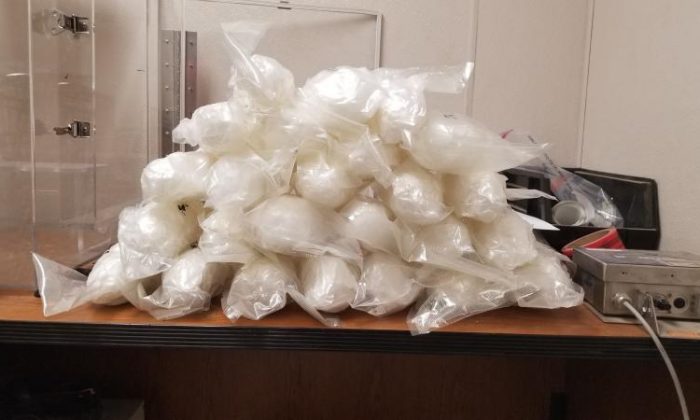Sens. Dianne Feinstein (D-Calif.) and Chuck Grassley (R-Iowa) introduced the Methamphetamine Response Act, which requires the Office of National Drug Control Policy (ONDCP) to designate methamphetamine as an emerging drug threat.
The bipartisan bill will require the ONDCP to create a national plan on how to prevent methamphetamine overdoses from becoming a national crisis.
According to the text of the senators’ legislation, admission into methamphetamine treatment programs went up from 15 percent in 2008 to almost 24 percent in 2017.
President Trump’s administration has made opioid addiction and the monitoring of emerging drug threats a priority.
“The Trump Administration is actively monitoring drug threats in order to successfully address any harmful trends,” ONDCP Director Jim Carroll said. “We are working hard every day to increase awareness of the dangers of illicit drugs and will continue to support the health and wellbeing of all Americans.”
According to the Drug Enforcement Administration (DEA), methamphetamine is readily available on the streets of American cities and is largely smuggled across the southwestern border (SWB) with Mexico.
“For years, meth has taken lives and destroyed families across America, particularly in the Midwest. Though this drug is not new, drug traffickers are finding new and harmful ways to increase meth’s potency and distribution, spiking overdose rates,” Grassley said.
According to the DEA, “Methamphetamine maintains a strong presence in the West, Southwest, and Southeast regions of the country due to proximity to the SWB and use of the interstate highway system.”
“Methamphetamine is, once again emerging, as a major threat to our nation,” said Feinstein.
“In just one year, psychostimulant-related overdose deaths, which includes methamphetamine, increased by 27 percent, the largest percent increase of any illicit drug, including fentanyl. Over the first nine months of the fiscal year, methamphetamine seizures increased by 52 percent, which shows how widely available this deadly drug has become,” Feinstein added.
Feinstein stressed that the methamphetamine problem should be addressed by a whole-of-government plan to best combat the emerging threat.
The new legislation will require that the ONDCP updates plans annually to include assessments on the availably of the drug, available treatments, and law enforcement programs that reduce the availability of the drug.
The bill also requires the ONDCP to address short and long-term strategies including those focused on supply and demand reduction as well as the funding needs to implement those strategies.
“By declaring meth an emerging drug threat, our bill helps law enforcement better respond to the challenges presented by drug traffickers’ evolving tactics, and urges our federal partners to continue to prioritize a response and strategy to address the meth crisis,” Grassley added.
